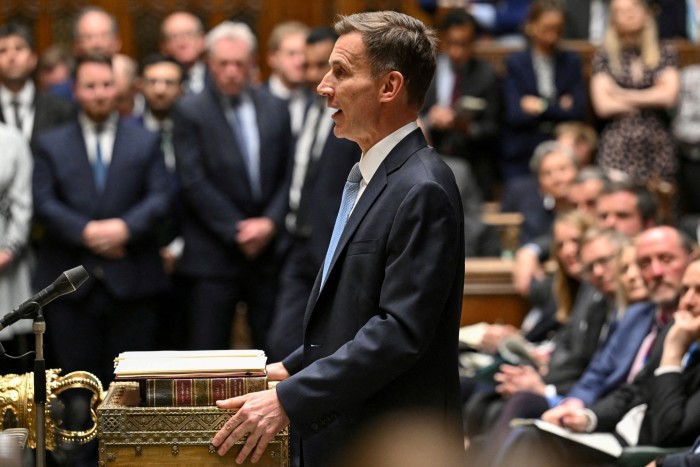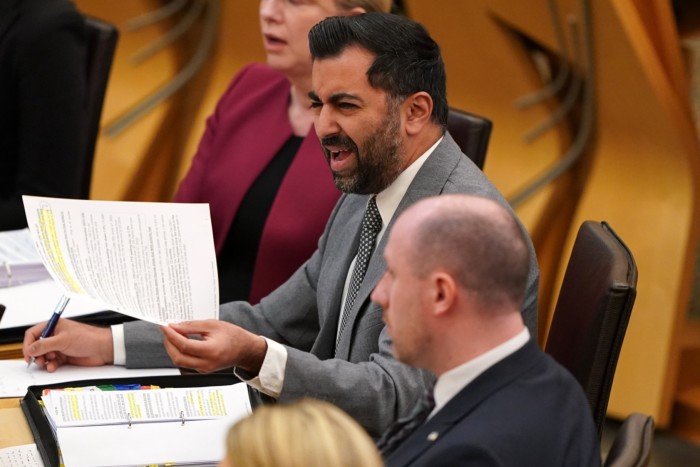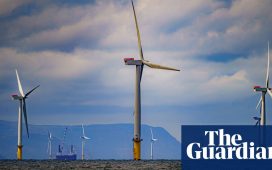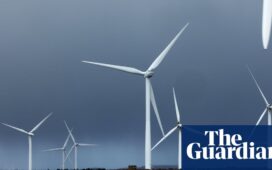The extension of oil and gas windfall taxes has provided much-needed ammunition for the Scottish National party to target Conservative seats in north-east Scotland, where 100,000 workers rely on the hydrocarbons industry.
The UK chancellor Jeremy Hunt’s pledge to extend a levy on fossil fuel profits threatens to undermine Tory fortunes in the north-east of Scotland, where many fear the transition to green energy will result in job losses.
“The Tories have shot themselves in the foot on the windfall tax,” said one SNP figure. “It is less clear that they are champions of the oil and gas sector.”
In his Budget on Wednesday, Hunt announced an extension of the Energy Profits Levy on oil and gas companies by 12 months despite opposition from Scottish Conservatives.
Soon afterwards the chancellor admitted that Scottish oil and gas had lost out, allowing nationalists to characterise it as a raid on Scottish resources ahead of the general election expected this year.
The comments made in an interview with the BBC on Thursday drew ire from the SNP leader at Westminster Stephen Flynn, who took his Aberdeen South seat from the Tories in 2019.
“Westminster has once again sold out the north-east of Scotland to fill the pockets of the UK Treasury,” Flynn said in a statement.
Scottish Conservatives had recently positioned themselves as the friend of the fossil fuel industry, given their opponents in the SNP and Labour have been gravitating around opposition to new production licences in mature North Sea fields. Labour has also promised to extend the windfall duty on oil and gas profits if it wins the election.

A furious Douglas Ross, leader of the Scottish Conservatives, has pledged not to vote on the measure. But UK secretary of state for Scotland Alister Jack did not oppose the extension, saying it was a “tough decision” needed to return huge energy profits to support better public services.
The Scottish Conservatives, who hold three seats in the north-east, are targeting a further two in the region. The party is calculating that the SNP-Conservative battleground will focus on the Scottish government’s lack of delivery on public services, rather than the Tories’ record in Westminster.
SNP strategists have suggested the move could revive a historic nationalist grievance over the £400bn in North Sea revenues that over five decades have funded largely Conservative policies opposed by most Scots, especially during the 1980s oil bonanza of the Margaret Thatcher era.
One former SNP MP cautioned that the nationalist party was “riding two horses”, given the main battle was with Labour in the central belt of Scotland, where voters are more concerned with net zero than oil.
“There’s not a lot of sympathy for energy companies seen to be profiteering wildly in the good times. That’s the reality,” they added.
Indeed, Scottish Conservatives have pushed back against the notion that the SNP or Labour could be trusted on oil and gas.
The SNP opposes extending the windfall tax but has also called for future production in the North Sea to be halted. Douglas Lumsden MSP, shadow net zero, energy and transport secretary, described the position as “absurd to the point of being laughable”.
“This ridiculous take — from a party that boasted about ending Aberdeen’s status as the oil and gas capital of Europe — is an insult to people’s intelligence,” he added.

Last year, Scotland’s first minister Humza Yousaf said the country would develop from Europe’s oil and gas capital into its net zero capital.
The SNP and Green Scottish government coalition has sought to burnish its climate credentials, funding supply chains around the renewables industry and opening a consultation on an energy strategy with a “presumption against” new North Sea oil production.
SNP officials pointed to figures from the North Sea Transition Authority, a regulator, showing that gas production in the north-east was scheduled to fall by 95 per cent by 2050, even with new licences.
While the issuance of licences was out of the hands of the SNP, the decline of oil and gas remained unavoidable, they argued.
The Scottish Greens have called for a reversal of the “perverse mechanism” within the windfall tax that provides oil and gas producers 91p tax relief for every £1 invested in UK operations, rather than making this available for renewable energy.
The complicated equation of managing down fossil fuels while ramping up renewables has raised concerns across the north-east.
Climate activists are pushing for a rapid shutdown of hydrocarbons to help meet Scotland’s ambitious net zero emissions target date of 2045. Meanwhile, oil and gas advocates argue that sustaining domestic production provides energy independence while funding the transition.
“Frankly, none of the three big parties have come out of the past two years looking particularly sure-footed on energy policy,” said Fergus Mutch, managing partner at True North, a consultancy. The windfall tax marks the “fourth tax raid on the North Sea in just two years”, he added.
He said voters in the north-east could split in different directions, with many rural parts having previously been held by Liberal Democrats.
“There’s a genuinely ripe constituency for the picking,” he said, “if a party is willing to say: ‘max out domestic production while we still need oil and gas, sustain the jobs that depend on it, and target the revenues generated on the transition’.”











